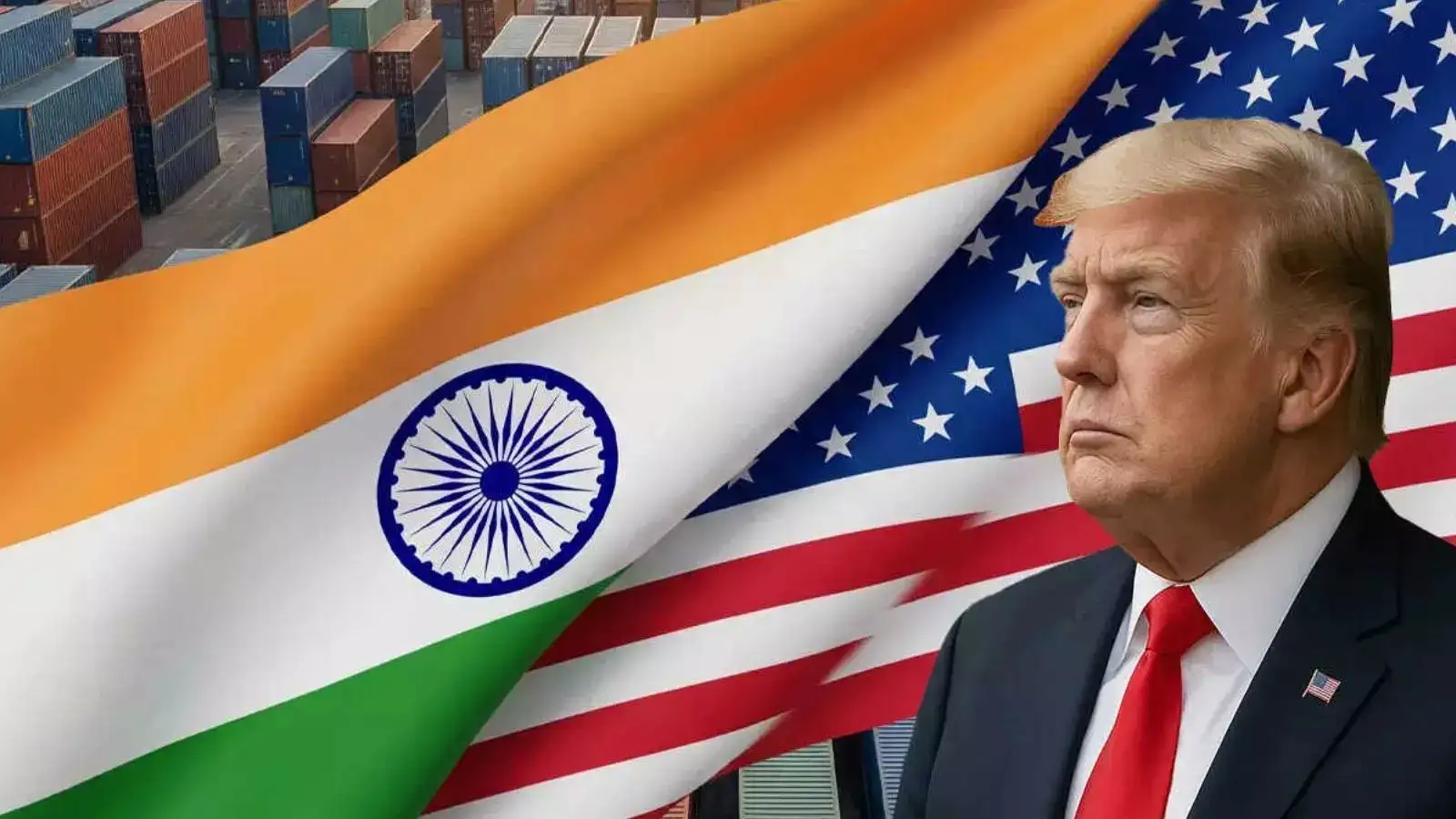The Indian stock market is bracing for a volatile session as global headlines take center stage. With US President Donald Trump confirming a sweeping 25 percent tariff on Indian goods, investors are now wondering whether this unexpected move will disrupt the market’s recent momentum. The announcement came late on Tuesday night and is expected to trigger a cautious, possibly jittery, start when markets open on Thursday morning.

Over the past few weeks, Dalal Street has been relatively calm, even resilient. Since early April, the Nifty has climbed steadily from around 23,000 levels to just shy of 25,000, recording over seven percent gains during this period. The Sensex has mirrored this uptrend, rising more than 4,800 points since April. This run has been fueled by strong domestic demand, resilient earnings, and hopes of stability in global trade dynamics. But the new tariff shock threatens to upset that rhythm.
The Gift Nifty, an early indicator of market sentiment, was already pointing to a weak open. It had slipped below the psychological level of 24,700 and was down over half a percent, reflecting the anxiety creeping into investor sentiment. Market watchers anticipate a knee-jerk reaction at the opening bell, though the scale of any sustained correction remains uncertain.
Nilesh Shah, Managing Director of Kotak Mahindra Asset Management, shared his perspective on the situation. He believes the markets will react negatively to this development, not only due to the tariffs themselves but also because of the unexpected nature of the move. Investors had been hoping that the US and India would reach some form of negotiated settlement or exemption.

Instead, the sudden imposition has raised concerns over the predictability of trade relations. Shah emphasized the need for India to respond with policy decisions that support domestic growth and competitiveness. He suggested that the government should use this challenge as an opportunity to strengthen economic fundamentals.
The impact of the tariff will not be felt evenly across sectors. Technology stocks, which have already seen volatility in recent months, are expected to come under pressure. The Nifty IT Index has gained about four percent since April, but with concerns about supply chain disruptions, deal delays, and rising costs, that momentum may stall. Companies that are heavily dependent on US contracts could be forced to reassess their strategies in the wake of these new duties.
Auto stocks, meanwhile, have been largely stable over the past quarter. However, component manufacturers that export directly to the US could see their margins squeezed. Some of the larger players with facilities in America might be insulated from the worst of the impact, but the finer details of how the tariffs apply to specific product categories will determine how these stocks react.

The pharmaceutical sector is also in focus. So far, the Nifty Pharma Index has remained flat since the tariff buzz began, but that could change quickly depending on how the US frames its next set of import rules. Companies like Lupin and Dr Reddy’s, which have a sizable exposure to the US market, could face investor scrutiny until there is more clarity on whether drugs and medical exports will be exempt.
Beyond these, other industries like textiles, electronics, and gems and jewellery could also feel the heat. These sectors are among India’s largest export categories to the US and have limited pricing power to absorb sudden duties. Exporters in these industries may have to consider shifting supply chains, renegotiating contracts, or even looking to new markets if the situation persists.
Some experts believe that this tariff escalation could also open the door for stronger bilateral trade agreements in the near future. Garima Kapoor, economist and executive vice president at Elara Capital, pointed out that India’s recent experience with the India-UK trade agreement could serve as a blueprint. If India moves quickly to secure a comprehensive deal with the US by September or October, it could help mitigate some of the immediate damage and provide long-term trade stability.
For now, the market’s next move hinges on how traders digest this news and whether institutional investors see this as a long-term shift or a temporary geopolitical bump. Either way, Thursday’s session is expected to be volatile, and cautious investors will likely keep a close eye on currency fluctuations, FPI flows, and any signals from the Reserve Bank of India.
To stay ahead of every market shift, trade update, and financial insight, follow You Finance on Instagram and Facebook today.














